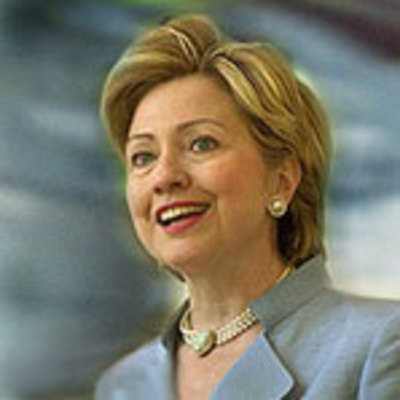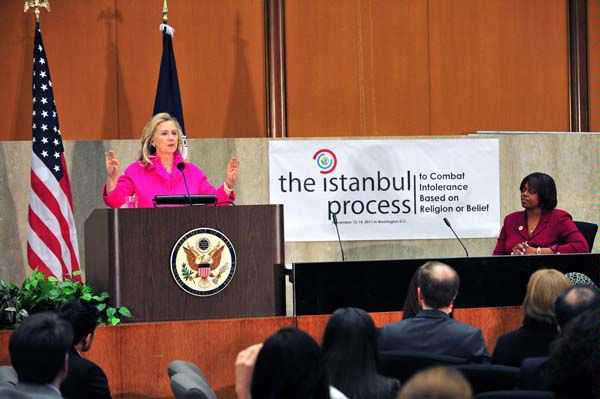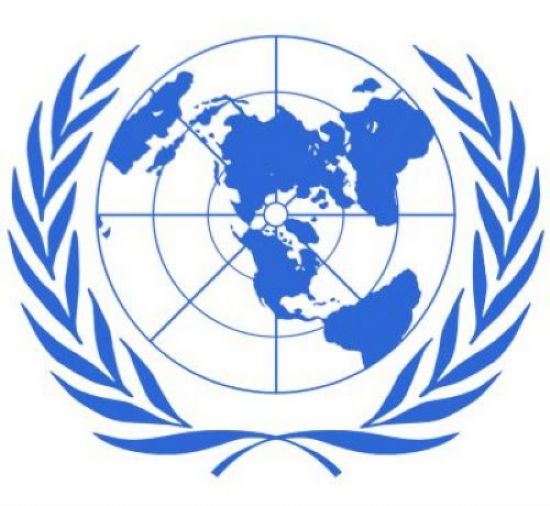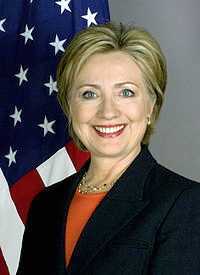Well, good afternoon, everyone, and I want to thank you all for participating in this conference where we are working together to protect two fundamental freedoms – the right to practice one’s religion freely and the right to express one’s opinion without fear.I’m delighted to see so many members of the diplomatic corps. I welcome all of you here to the State Department. I especially wish to acknowledge Ambassador Suzan Johnson Cook, who has been leading our efforts, and also Ambassador Eileen Donahoe, the U.S. Ambassador to the Human Rights Council, who has also been tireless in pursuit of America’s fundamental and the world’s universal values.
Now this year, the international community in the Human Rights Council made an important commitment. And it was really historic, because before then, we had seen the international community pit against one another freedom of religion and freedom of expression. And there were those in the international community who vigorously and passionately defended one but not the other. And our goal in the work that so many nations represented here have been doing, with the adoption of Resolution 1618 and then again last month in the General Assembly’s Third Committee, was to say we all can do better. And this resolution marks a step forward in creating a safe global environment for practicing and expressing one’s beliefs. In it, we pledge to protect the freedom of religion for all while also protecting freedom of expression. And we enshrined our commitment to tolerance and inclusivity by agreeing to certain concrete steps to combat violence and discrimination based on religion or belief. These steps, we hope, will help foster a climate that respects the human rights of all.
Now, the United States is hosting this conference because religious freedom and freedom of expression are among our highest values. They are enshrined in our Constitution. For people everywhere, faith and religious practice is a central source of our identity. It provides our lives with meaning and context. It is fundamental to who we are. And as the Universal Declaration of Human Rights makes clear, each of us is born free to practice any religion, to change our religion, or to have none at all. No state may grant these freedoms as a privilege or take them away as a punishment if you believe, as I do and as our country does, that they are not rights bestowed by any government. They are rights endowed by our Creator within each of us. And therefore, we have a special obligation to protect these God-given rights.
And if a government does try to deny them or take them away, it amounts to a rejection of that universal right. And it also amounts to a repudiation of that fundamental conviction that we are all created equal before God. Therefore, restricting the practice of anyone’s faith is a threat to the human rights of all individuals. Communities of faith are not confined by geopolitical borders. Wherever you are in the world, there will certainly be people whose religious beliefs differ from your own, maybe by just a little bit or maybe by a lot. And my ability to practice my religious faith freely does not, and indeed cannot, diminish yours.
Religion can be such a powerful bond, but we also recognize that it can be misused to create conflict. There are those who, for reasons actually having little to do with religion, seek to instill fear or contempt for those of another creed. So we believe that it is the duty of every government to ensure that individuals are not subject to violence, discrimination, or intimidation because of their faith or their lack of faith. That is the commitment that the world made to religious freedom more than 60 years ago when we adopted the Universal Declaration of Human Rights.
At the same time, as we strive to protect individuals from violence and discrimination because of their religion or their beliefs, we must also express the freedom of expression. Now, in the United States, we take that especially seriously because many of those who came to our country came for religious reasons. They came because they were being discriminated against or their religion was being outlawed. They started coming in the 17th century, and they still come all the way through the 21st century.
Well, how would one know that you were being discriminated against if you didn’t have the right to freedom of expression? Your neighbor knows, well, that person is different from me because he or she believes differently. So the freedom of religion and the freedom of expression are absolutely bound up together.
Now, there are those who have always seen a tension between these two freedoms, especially when one person’s speech seems to question someone else’s religious beliefs, or maybe even offends that person’s beliefs. But the truth we have learned, through a lot of trial and error over more than 235 years in our country, is that we defend our beliefs best by defending free expression for everyone, and it lowers the temperature. It creates an environment in which you are free to exercise and to speak about your religion, whether your neighbor or someone across the town agrees with you or not. In fact, the appropriate answer to speech that offends is more speech.
Now, in the United States, we continue to combat intolerance because it is – unfortunately, seems to be part of human nature. It is hurtful when bigotry pollutes the public sphere, but the state does not silence ideas, no matter how disagreeable they might be, because we believe that in the end, the best way to treat offensive speech is by people either ignoring it or combating it with good arguments and good speech that overwhelms it.
So we do speak out and condemn hateful speech. In fact, we think it is our duty to do so, but we don’t ban it or criminalize it. And over the centuries, what we have found is that the rough edges get rubbed off, and people are free to believe and speak, even though they may hold diametrically opposing views.
Now, with Resolution 1618, we have clarified these dual objectives. We embrace the role that free expression plays in bolstering religious tolerance. We have agreed to build a culture of understanding and acceptance through concrete measures to combat discrimination and violence, such as education and outreach, and we are working together to achieve those objectives.
Now, I know that in the world today, intolerance is not confined to any part of the world or any group of people. We all continue to deal with different forms of religious intolerance. That’s true here, that’s true in Europe, that’s true among countries in the Organization of Islamic Cooperation, everywhere in the world. It’s true where people, if they are discriminating or intimidating, they’re doing it against Muslims or Jews or Christians or Buddhists or Baha’is or you name it. There has been discrimination of every kind against every religion known to man.
And yet at the same time, it’s one thing if people are just disagreeing. That is fair game. That’s free speech. But if it results in sectarian clashes, if it results in the destruction or the defacement or the vandalization of religious sites, if it even results in imprisonment or death, then government must held those – hold those who are responsible accountable. Government must stand up for the freedom of religion and the freedom of expression. And it’s a situation which is troubling to us, because a recent study by the Pew Forum on Religion and Public Life found that 70 percent of the world’s population lives in countries with a high number of restrictions on religious freedom.
In America, we are proud of our long and distinctive record of championing both freedom of speech and freedom of religion, and we have worked to share our best practices. But I have to say we have one difficulty in understanding all of the problems that we see around the world, and that is that because religion is so personal and because it is something that we highly value in ourselves, it strikes us as troubling that people are not confident in their religious beliefs to the point where they do not fear speech that raises questions about religion.
I mean, every one of us who is a religious person knows that there are some who may not support or approve of our religion. But is our religion so weak that statements of disapproval will cause us to lose our faiths? That would be most unfortunate. In fact, what we have found, in study after study, is that the United States is one of the most religious countries in the world. And yet anybody can believe anything and go anywhere. And so there is no contradiction between having strong religious beliefs and having the freedom to exercise them and to speak about them and to even have good debates with others.
And so the United States has made a commitment to support the 1618 implementation efforts, but we also would hope that we can take practical steps to engage with members of religious minority groups. We know that antidiscrimination laws are no good if they’re not enforced, and if they’re not enforced equally, we know that governments which fear religion can be quite oppressive, but we know that societies which think there’s only one religion can be equally oppressive.
Now, the fact is that no matter how strongly each of us believes, none of us has the benefit of knowing all the truth that God holds in his hands. And therefore, we are doing the best we can here on earth to reflect and to give honor to our creator in a way that is manifest in our religious values. Because truly, at the root of every major religion, is a connection with the divinity, is an acceptance, and is a recognition that we all are walking a path together.
Now I know that some in my country and elsewhere have criticized this meeting and our work with all of you. But I want to make clear that I am proud of this work, and I am proud to be working with every one of you. And I believe that this work is an affirmation of America’s values, but equally important an affirmation of universal values. Because we nor – no country individually has a monopoly on the truth, and we will do better when we live in peace with each other, when we live with respect and humility, and listen to each other. And it is important that we recognize what we accomplished when this resolution ended 10 years of divisive debate where people were not listening to each other anymore.
Now we are. We’re talking. We have to get past the idea that we can suppress religious minorities, that we can restrict speech, that we are smart enough that we can substitute our judgment for God’s and determine who is or is not blaspheming. And by bringing countries from around the world here, we are affirming our common humanity and our common commitment to defend and promote fundamental rights.
Now these will not be easy conversations. When I was growing up, my parents said, “You should never talk about religion, because you will always spark a fight.” And that was even amongst people of the same faith. We have – there’s lots of funny stories about different kinds of Christians that won’t talk to other kinds of Christians, because another kind of Christian is not as good as the first kind of Christian. Well, we know that those kind of divisions exist in every major religion, where people claim that your particular version of religion is the only one that can be followed.
But people of all faiths have so much to gain by working together. And I was so moved by the images that we saw coming out of Tahrir Square back in February – January and February, where you saw Coptic Egyptians joining hands to form a protective circle around their Muslim brothers and sisters so they could pray safely in the midst of these huge crowds. And then you saw Muslims doing the same for their Christian brothers and sisters. That is, to me, the highest expression of religious tolerance and free expression that one could possibly find. Those were defining moments in 2011 and those are images that inspire me as we move into 2012.
So thank you. And I think interfaith dialogue, reaching out to those with whom you disagree, even agreeing to disagree, so to speak, is a part of the work we are struggling to do. And we can make progress where we have a new attitude in our world where we can believe strongly what we believe. We can think others are wrong, but we don’t feel so insecure and so fearful of their wrong views that we try to suppress them, imprison them, or even kill them. Instead, we trust that over time, if they are wrong, they will come to see the error of their ways. But we continue the conversation as fellow human beings and as people of faith.
So I thank you very much for being with us, and I wish you well as you continue this absolutely important work. I think if we do our work right, in years to come, people will look back and say this was a great step forward on behalf of both freedom of religion, freedom of expression, and our common humanity. Thank you all very much. (Applause.)
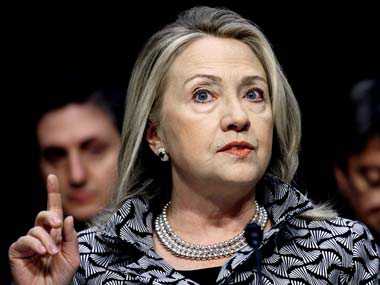 Clinton will begin her trip May 31 and ends it in Istanbul on June 7, speaking at a counterterrorism forum and holding talks with Turkish officials on Syria, where President Bashar Assad is seeking to crush an uprising against his rule, and Iran, whose nuclear program the United States suspects is designed to develop atomic weapons.
Clinton will begin her trip May 31 and ends it in Istanbul on June 7, speaking at a counterterrorism forum and holding talks with Turkish officials on Syria, where President Bashar Assad is seeking to crush an uprising against his rule, and Iran, whose nuclear program the United States suspects is designed to develop atomic weapons.

